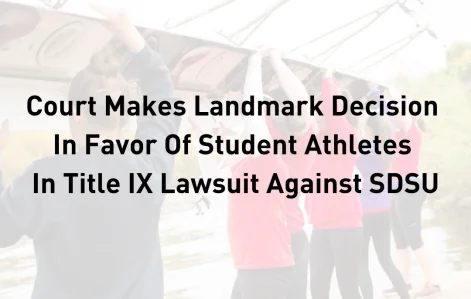Becoming pregnant can be one of the most joyous, and simultaneously terrifying, moments of a person’s life. Pregnant employees also have the added fear of losing their job because of the pregnancy. This is especially true for pregnant employees who suffer from a pregnancy-related disability, which could put them out of work for months. Fortunately, California law protects longer leaves of absence for employees who suffer from a pregnancy-related disability.
Under California’s Pregnancy Disability Leave Law (“PDLL”), which is part of the Fair Employment and Housing Act (“FEHA”), employees are entitled to up to four months of leave for pregnancy-related disabilities. Additionally, FEHA requires employers to accommodate any physical or mental disability of their employees, including engaging in a good-faith interactive process with the employee to determine appropriate accommodations. Leave for a finite period of time has been considered a reasonable accommodation under California Law. But for years, it was unclear whether a pregnant employee could take her four months of leave under the PDLL and then take additional leave as a reasonable accommodation under FEHA, or if her leave was capped at four months.
California Code of Regulations §11047 answered this question, stating an employer’s duty to provide reasonable accommodations to a disabled employee is separate from an employer’s duty to comply with PDLL requirements. Thus, pregnant employees are entitled to four months of leave for pregnancy-related disabilities in addition to the protections afforded under FEHA, such as a finite period of leave as a reasonable accommodation.
Additionally, California Code of Regulations §11093 states that at the end of an employee’s PDLL leave, an eligible employee may request additional time off for the birth of the employee’s child under the California Family Rights Act (“CFRA”). CFRA allows an employee a maximum of 12 workweeks of leave. Thus, a disabled employee who has taken four months of PDLL leave may take up to an additional 12 workweeks of CFRA leave.
The California Court of Appeal applied this reasoning in Sanchez v. Swissport, Inc., finding that a disabled employee was entitled to both PDLL and additional leave as a reasonable accommodation. In Sanchez, the plaintiff suffered a pregnancy-related disability which, once diagnosed, required her to be on bed rest through the remainder of her pregnancy. The plaintiff’s employer, Swissport, permitted the plaintiff to take four months of PDLL leave, as well as additional leave provided by the CFRA and accrued vacation time. However, once the leave was exhausted, the plaintiff’s due date was still three months away. Swissport then terminated plaintiff’s employment, believing it had no further duty. The trial court agreed, finding that FEHA leave was capped at four months.
The California Court of Appeal, however, disagreed. The Court held that the PDLL supplements the protection workers are entitled to under the FEHA. Therefore, Swissport had a duty to engage in the interactive process and provide the plaintiff with reasonable accommodation for her pregnancy-related disability.
Similarly, in Gardner v. Federal Express Corp., a Federal District Court denied summary judgment, opining that a question of fact existed as to whether additional leave would have been a reasonable accommodation for an injured employee, even though the employee exhausted his company’s 90-day leave policy. In other words, even if an employee has exhausted mandated leave time, the employer may be required to grant more leave as a reasonable accommodation.
To schedule your free initial consultation, contact us online or call (619) 342-8000 today!





